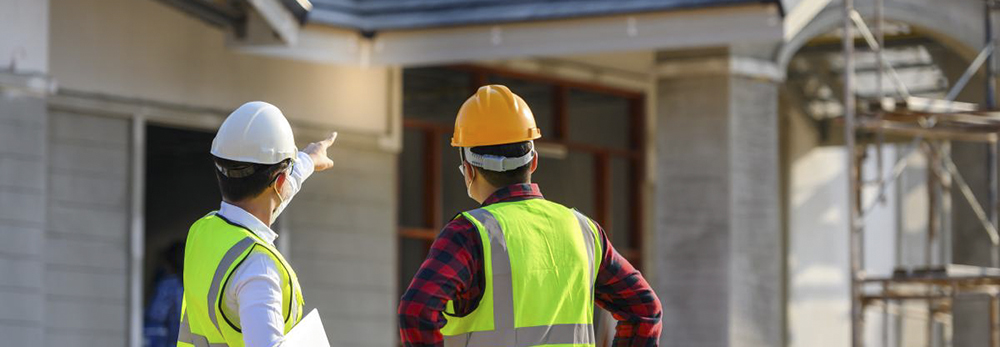CIOB calls for reuse and refurbishment over demolition
Contents |
[edit] Urgent action needed to reduce buildings demolished instead of refurbished.
Urgent action is needed to reduce the number of buildings being demolished instead of refurbished in Ireland and Northern Ireland in order to meet net zero targets, says construction industry body The Chartered Institute of Building (CIOB).
The built environment accounts for 37% of Ireland’s carbon emissions and 49% in the UK with heating, cooling, and lighting buildings, known as operational carbon, being responsible for the majority with the remainder attributable to embodied carbon; emissions resulting from mining, quarrying, transporting, and manufacturing of building materials, in addition to construction activities, the repair, renovation and final disposal of buildings.
[edit] CIOB’s proposal for Ireland
Under Ireland’s current tax structure, a reduced rate of 13.5% VAT is applied to demolition projects, creating a perverse environment where the embodied-carbon-hungry activities of demolition and replacement enjoy taxation parity with the sustainable repair and restoration, of Ireland’s built environment.
CIOB says this contradicts the principles outlined in the Circular Economy and Miscellaneous Provisions Act 2022, the Climate Action and Low Carbon Development (Amendment) Act 2021, and the EU Taxonomy Regulation 2020 - an EU-wide classification system for sustainable activities.
The organisation is proposing the Government use the tax system to incentivise repair and restoration over demolition thereby reducing the embodied carbon footprint of Ireland’s built environment. It is calling for demolition to be charged at the standard rate of 23% VAT, while repair and renovation activities remain at the reduced rate of 13.5%.
Click here for more information on CIOB's proposal for Ireland
[edit] CIOB’s proposal for Northern Ireland
Currently, in the UK, renovation and retrofitting costs are subject to the standard 20% VAT, but demolition and new build is not, often making it more financially attractive to raze buildings to the ground than restore them, despite restoration usually being the more sustainable option. This has serious negative impacts on decarbonisation with both demolition and new build generating significant levels of embodied carbon as well as pollution, noise, traffic and disruption and waste, most of which ends up in landfill or being incinerated. The UK’s lack of VAT on demolition makes it an outlier compared with most other nations.
CIOB says this contradicts the principles outlined in the Climate Change Act (NI) 2022, the, and the 2022 Circular Economy Strategy for Northern Ireland.
Given that UK-wide tax reform appears unlikely, CIOB is proposing that, when the Assembly returns, the Northern Ireland Government use its devolved powers to implement a demolition levy – one that bypasses the current devolution settlement around tax – to level the unequal playing field that threatens the sustainability of the built environment.
Click here for more information on CIOB's proposal for Northern Ireland
[edit] CIOB’s view
Joseph Kilroy, Policy and Public Affairs Manager for Ireland, Northern Ireland, Scotland and Wales at CIOB, said: “We hear about the need to move away from a throw-away society and upcycle and recycle when it comes to things like clothes and furniture, and this needs to be extended to buildings too. At a time when so many decisions are cost-based, it’s wrong that carbon-intensive options can be more financially beneficial than more sustainable options. With the construction and operating of buildings accounting for large proportions of Ireland’s and Northern Ireland’s carbon emissions, incentivising refurbishment and renovation needs to be a priority for both Governments in order to reach net zero by 2050.”
CIOB says reforming VAT in Ireland, and introducing a demolition levy in Northern Ireland, would also generate revenue, which could be used to fund initiatives that support energy-efficient upgrades to housing, help vulnerable households cope with the cost-of-living crisis, and preserve historic buildings.
Kilroy adds: “Charging full VAT for demolition in Ireland while maintaining the reduced rate for repair and refurbishment and introducing a levy for demolition in Northern Ireland would create tax environments that reflect the principles of existing climate legislation and the urgency of the national net zero by 2050 targets."
This article appears on the CIOB news and blog website as "CIOB calls for reuse and refurbishment over demolition in Ireland and NI" dated October 24, 2023.
--CIOB
[edit] Related articles on Designing Buildings
- Alteration work.
- BPIE report urges EU to incorporate the carbon footprint of construction into policy.
- Carbon footprint.
- Climate change act.
- Climate change science.
- Climate Emergency Design Guide.
- CIBSE Case Study Angel Building Refurbishment.
- CIBSE Case Study Thamesmead Estate Refurbishment.
- Circular Construction in Regenerative Cities (CIRCuIT).
- Comprehensive refurbishment.
- Decoration.
- Embodied carbon.
- Energy efficiency retrofit training videos.
- Flexbury Church.
- Licence to alter.
- Making good.
- National Refurbishment Centre.
- Point Cloud modeling considerations for M&E in refurbishment projects.
- Pre-demolition and pre-refurbishment audits.
- Remedial works.
- Renovation.
- Renovation v refurbishment v retrofit.
- Restoration.
- Retrofit.
- Upgrade.
- Wood, embodied carbon and operational carbon.
Featured articles and news
UKCW London to tackle sector’s most pressing issues
AI and skills development, ecology and the environment, policy and planning and more.
Managing building safety risks
Across an existing residential portfolio; a client's perspective.
ECA support for Gate Safe’s Safe School Gates Campaign.
Core construction skills explained
Preparing for a career in construction.
Retrofitting for resilience with the Leicester Resilience Hub
Community-serving facilities, enhanced as support and essential services for climate-related disruptions.
Some of the articles relating to water, here to browse. Any missing?
Recognisable Gothic characters, designed to dramatically spout water away from buildings.
A case study and a warning to would-be developers
Creating four dwellings... after half a century of doing this job, why, oh why, is it so difficult?
Reform of the fire engineering profession
Fire Engineers Advisory Panel: Authoritative Statement, reactions and next steps.
Restoration and renewal of the Palace of Westminster
A complex project of cultural significance from full decant to EMI, opportunities and a potential a way forward.
Apprenticeships and the responsibility we share
Perspectives from the CIOB President as National Apprentice Week comes to a close.
The first line of defence against rain, wind and snow.
Building Safety recap January, 2026
What we missed at the end of last year, and at the start of this...
National Apprenticeship Week 2026, 9-15 Feb
Shining a light on the positive impacts for businesses, their apprentices and the wider economy alike.
Applications and benefits of acoustic flooring
From commercial to retail.
From solid to sprung and ribbed to raised.
Strengthening industry collaboration in Hong Kong
Hong Kong Institute of Construction and The Chartered Institute of Building sign Memorandum of Understanding.
A detailed description from the experts at Cornish Lime.

























